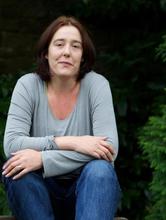
Dr Emma Williamson, Senior Research Fellow at the Centre for Gender and Violence Research, updates us on the Centre’s 25 year anniversary celebration event
On Monday 15th June (2015) the Centre for Gender and Violence Research in the School for Policy Studies celebrated its 25 year anniversary.
Set-up in 1990 with, as described by one of the co-founder Ellen Malos, “a piece of headed paper with our names typed on it”, the group has grown from its first project on housing funded by the Joseph Rowntree Foundation to a Centre of 10 staff and more than 10 PhD students from across the world.
The significance of the date gave us an opportunity at our yearly conference to reflect on the work of the Centre and our founding principles, to take stock of the work we have done as well as to look forward and to think about where we want to be in the future.
The group’s co-founders, Gill Hague and Ellen Malos, introduced a welcome film at the event within which they highlighted the early days of the group, the many challenges, and the personal, as well as professional, impacts of starting a group with its roots firmly in the blossoming women’s movement and activism. Key to the principles of the group was a recognition of the need to name power.
Whether that be power between abusers and survivors, participants and researchers, or the centre and colleagues overseas.
As with many of our seminar events, present throughout the day were activists, academics, survivors, and service providers, both as delegates and speakers. We heard how the work of the Centre over the years has influenced practice and continues to do so. How the role of specialist violence organisations as the ‘commissioners’ and co-producers of our work continues to influence the projects we seek funding for to ensure that it has use, purpose, and makes a difference.
The event included talks by practitioners (Steven Jackson, domestic violence lead at the College of Policing) and practitioner/ researchers (Simon Kerrs, Co-ordinator of Cambridgeshire IDVA services), as well as findings from recent research about teen dating violence both off and on-line across Europe (Barter), the plight of Yezidi women kidnapped, abused, and exploited, by ISIS (Begikhani), and the importance of ‘memorable events’ for disclosure by those with experience of childhood sexual abuse (Allnock).
Also celebrated were the books produced by the centre over the years focusing on a range of topics but always concerned with the role of gender in society and the violences associated with it. From Power to Change to the Centre’s recent edited collection, Understanding Gender Based Violence this selection of the centre’s publications illustrates the breadth of work undertaken in the Centre and the International focus of much of that work.
During the event we included Pecha Kucha slots. An idea tried and tested at the Provide conference in 2014, these short three minute presentations give an opportunity for a wide range of speakers (practitioners, phd students) to get their key points across to the audience using humour and creativity alongside the more usual presenting skills. Given the nature of our work – gendered violence is never amusing – this was an opportunity to recognise and celebrate the ways we use humour and creativity in our relationships to help us all, whether academic, survivor, specialist worker, cope with our work and to support each other. A huge thanks must go to all the pecha kuccha speakers – alongside learning more about service provision and new initiatives, we had rock chicks, rainbows, embarrassing revelations, alice in wonderland, and a call to activism to continue fighting against the austerity which impacts on the ability of the sector to support those affected by violence and abuse.
Our two main keynote speakers were Evan Stark, talking about his work on Coercive Control and the concept of gendered violence as a ‘liberty’ or Human Rights crime, and challenges of introducing the new English legislation on coercive control, and Marianne Hester, talking about the importance of Human Rights policy, such as the European Istanbul Convention, in linking gender based violence and inequality, and providing a framework to disrupt abuse at all levels – from individual to society. Introducing Marianne, Evan praised her tireless work over the years in the pursuit of knowledge which has galvanised governments and practitioners to scrutinise their own responses to abuse. Both provided an overview of the political and theoretical imperatives for challenging wider structural inequalities, as a way to inform policy and practice to tackle gender based violence.
As always we thank Evan, and Anne Flitcraft, for joining us in Bristol to share their ideas, friendship, and humour (!).
Finally, the event was an opportunity to recognise the contribution of survivors to guiding the direction of our work, to their bravery in taking part in research, and in holding us all accountable. Many survivors were in attendance on the day and reported feeling energized, inspired, and enthused by the conference. For that, we would like to thank everyone who attended and contributed on the day – both speakers and delegates. We would also like to thank all of the individuals and organisations who have worked with the centre of the past 25 years. Whilst we hope that a Centre like ours will no longer be necessary in another 25 years, we will none the less continue to respond to those at the front line to produce academic work that is rigorous, relevant, and that makes a difference.

